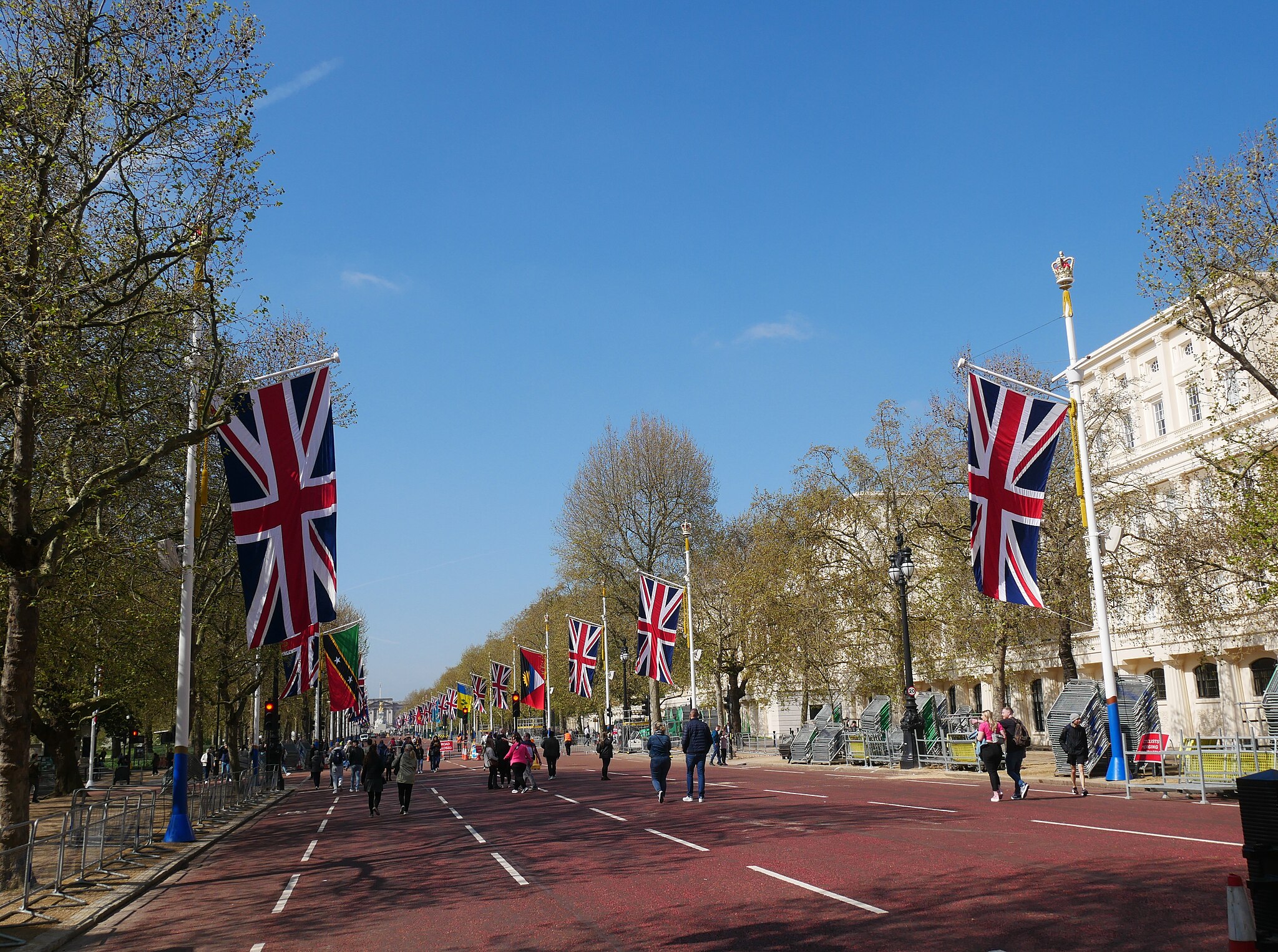Royalty or Republic? How the coronation affects Scotland’s national identity

Flags flanking the Mall in central London in anticipation of the coronation of King Charles III.
Anna Johnson - This weekend, King Charles III will take the throne as the United Kingdom’s first new ruler in seventy years. His coronation marks a new era in the UK and the Commonwealth, though some parts of both are taking that transition better than others. Since the formation of the United Kingdom of Great Britain in 1707, Scotland’s relationship with England has been contested. In recent years independence movements have been gaining traction in Scotland. In the last referendum in 2014, Scots voted to stay in the UK by a margin of 55% to 44%. Recent economic and political struggles in the UK, including Brexit, have the potential to sway Scots even further away from the UK.
The coronation underscores tensions in the way Scotland views its own identity as a nation. This sense of national identity is built upon doing everyday things that support the nation, including celebrations like the coronation. Choosing to celebrate this weekend shows a commitment to British identity - a commitment that not every Scot feels compelled to uphold. Scotland has a complicated relationship with identity, as both a nation itself and part of a political union with the rest of the state, the UK. For centuries Scots have wrestled with competing national identities, fighting to keep their Scottish identity alive while maintaining their ties to the UK. Scots loyal to the monarch have tried to balance a national identity of being Scottish with loyalty to the crown and British state. A much less popular figure than his mother, Queen Elizabeth II, King Charles III is unlikely to bolster attachment to Britain and support for the monarchy. Still, some Scots do tie their national identity back to the crown as a symbol of national heritage. The coronation could pull Scotland back into the UK, bolstering pride through attachment to the state. Though some Scots point out the coronation’s grandeur stands in stark contrast with the ongoing cost of living crisis in the UK. National identity creates a sense of loyalty and pride but the hazy divisions between loyalty to Scotland and to the crown complicate that identity.
The crown holds ideological power over those under its reign. This sense of power and loyalty to the monarchy pushes people to uphold their ties to the UK despite a competing sense of Scottish identity. Without its history of power and strength, the monarchy would have lost its ability to hold the UK together long ago. King Charles III’s coronation promises to bolster that sense of power in the hope that his leadership can hold the United Kingdom together through the social, political, and economic turmoil the country finds itself in.
Photo Credit: Doyle of London, CC BY-SA 4.0, via Wikimedia Commons

